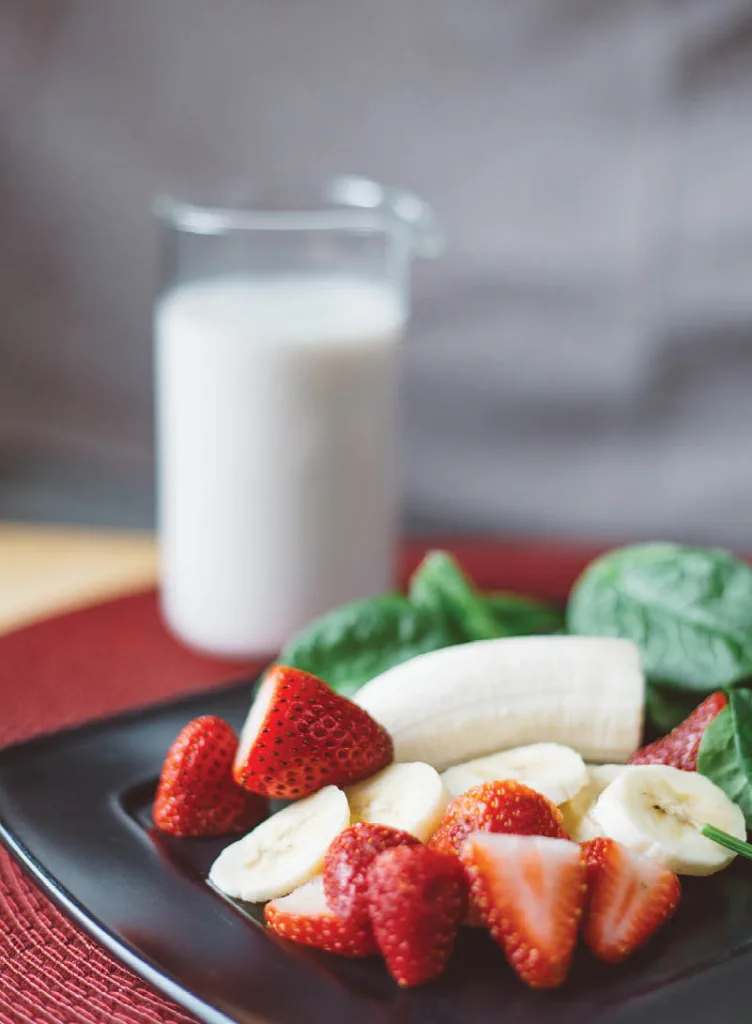
By Mimi Greenwood Knight
Not all foods are created equal! When it comes to keeping your teeth and gums healthy, dental professionals recommend a core group of essential vitamins and minerals for optimum oral health.
Calcium
Found in milk, cheese, yogurt, broccoli, and salmon, calcium helps build bones and provides structural support throughout your body. In your mouth, it helps harden your enamel and strengthen your jawbone.
Vitamin D
Found naturally in sunlight but also in fatty fish, canned tuna, and Portobello mushrooms, Vitamin D helps your body absorb needed calcium while boosting bone mineral density.
Potassium
Found most commonly in bananas, potassium is also in lima beans, tomatoes, Swiss chard, potatoes, sweet potatoes, avocados, and prunes. Potassium improves bone mineral density and prevents blood from becoming too acidic, which can leach calcium from your bones and teeth.
Phosphorus
Found in scallops, sardines, cod, shrimp, tuna, and salmon, as well as soybeans, lentils, pumpkin seeds, beef, pork, and cheese, phosphorus supports calcium in building strong bones and teeth.
Vitamin K
Found in kale, collards, spinach, parsley, broccoli, and Brussels sprouts, Vitamin K helps block substances that break down bone and helps your body produce osteocalcin, a protein that supports bone strength.
Vitamin C
Vitamin C, found in citrus fruits, potatoes, and leafy greens, strengthens your gums and the soft tissue in your mouth. It can also protect against gingivitis, the early stage of gum disease, and can prevent your teeth from loosening.
Vitamin A
Found in fish, egg yolks, liver, spinach, kale, collard greens, apricots, cantaloupe, pumpkin, carrots, and sweet potatoes, Vitamin A helps keep mucous membranes healthy, prevents dry mouth, and helps your mouth heal quickly.
Next time you fill your plate, don’t forget to include some oral-health-friendly foods!
Home Remedies for Fresh Breath
- Gargle with warm water and either salt or apple cider vinegar.
- Suck on whole cloves throughout the day.
- Snack on apples, celery, or carrots.
- Add a few drops of tea tree oil to your toothpaste.
The Right Toothbrush for the job
- Always choose a toothbrush with soft bristles, since hard bristles can cause gum recession resulting in hot and cold sensitivity.
- Choose a toothbrush head size that fits easily in your mouth and brushes one to two teeth at a time.
- Replace your toothbrush when bristles are worn or after an illness.
Read more about Healthy Foods/Recipes here on LivingMagazine.net: CLICK HERE










